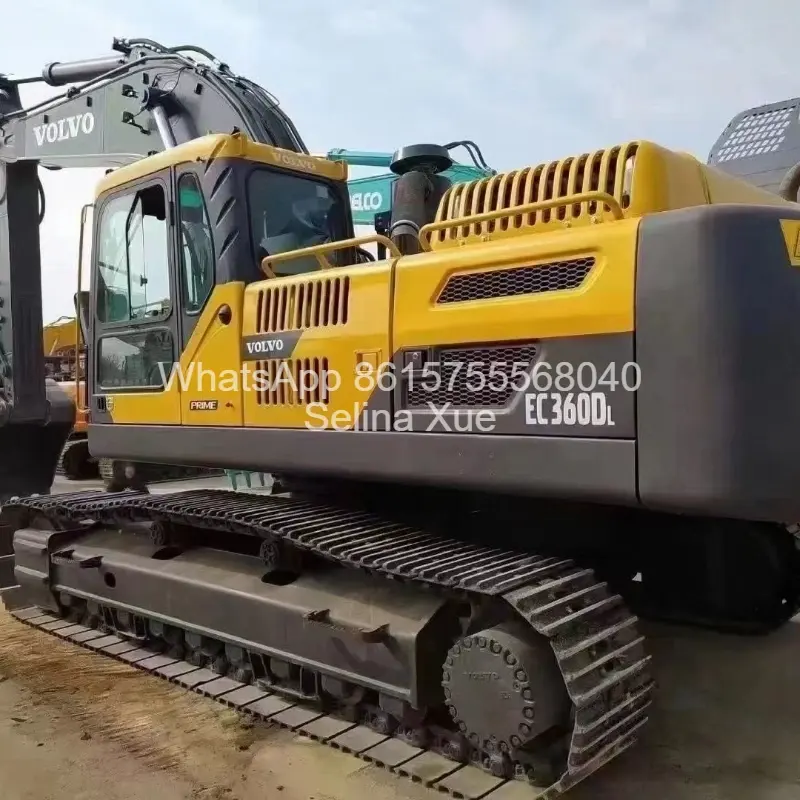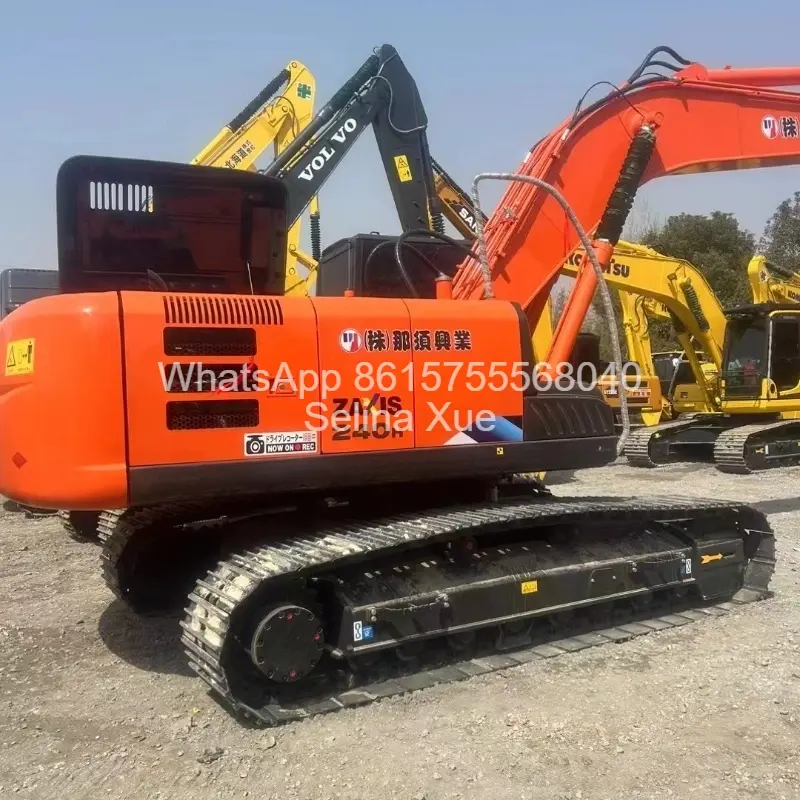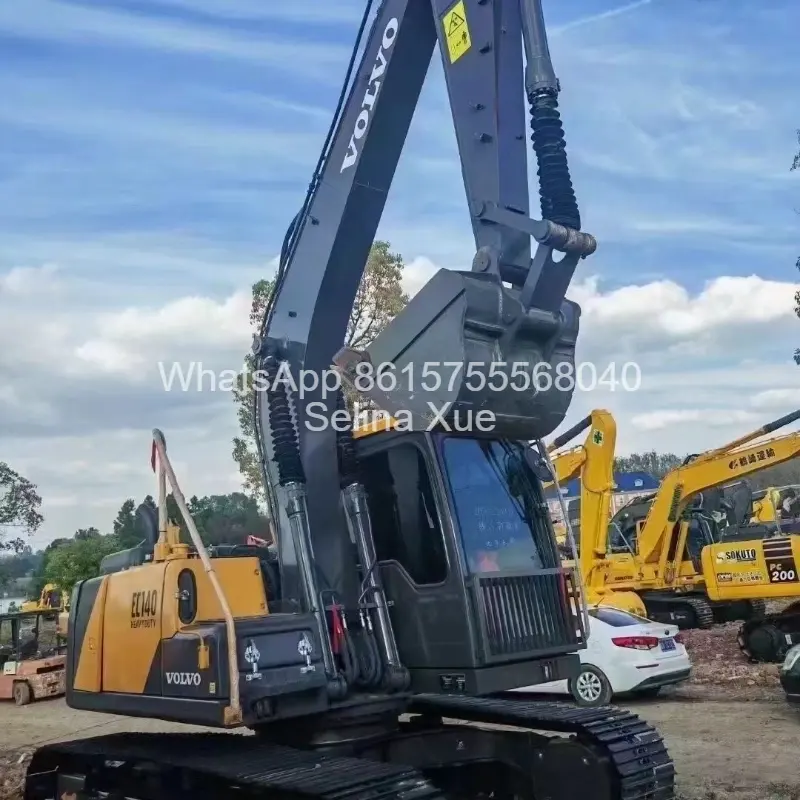Excavators are essential heavy machinery in construction and excavation projects, designed for digging, lifting, and moving materials. When an excavator fails to start, it can lead to delays and increased costs. Understanding the common reasons behind this issue can help operators troubleshoot effectively and minimize downtime. Here are some of the most frequent causes of an excavator not starting, along with potential solutions.
1. Battery Issues
Symptoms:
- Engine cranks slowly or not at all.
- Dashboard lights may flicker or remain off.
Causes:
- Weak or Dead Battery: Over time, batteries can lose their charge due to age or extended periods of inactivity.
- Corroded Terminals: Corrosion on battery terminals can prevent proper electrical connections.
Solutions:
- Jump Start: Use jumper cables to connect to another machine or vehicle to start the excavator.
- Battery Replacement: If the battery is old or not holding a charge, consider replacing it.
- Clean Terminals: Disconnect the battery and clean terminals with a wire brush to ensure a good connection.

2. Fuel Problems
Symptoms:
- Engine cranks but fails to start.
- Possible smell of fuel or sputtering noises.
Causes:
- Empty Fuel Tank: It might seem obvious, but running out of fuel is a common reason for starting issues.
- Fuel Contamination: Water or dirt in the fuel can clog filters and injectors, preventing proper combustion.
Solutions:
- Refill Fuel: Check the fuel gauge and fill the tank if it’s empty.
- Replace Fuel Filters: Change the fuel filters if they appear dirty or clogged.
- Inspect Fuel System: If contamination is suspected, drain the fuel tank and clean the fuel lines before refilling with clean fuel.

3. Electrical System Failures
Symptoms:
- No response when turning the ignition key.
- Electrical components (lights, horn) may not work.
Causes:
- Faulty Ignition Switch: A worn or damaged ignition switch can prevent the engine from starting.
- Blown Fuses: Electrical fuses protect circuits from overload; a blown fuse can interrupt power to essential systems.
Solutions:
- Check Fuses: Inspect and replace any blown fuses in the fuse box.
- Test Ignition Switch: If fuses are fine, test the ignition switch for continuity and replace it if necessary.
4. Starter Motor Issues
Symptoms:
- Clicking sound when turning the key.
- Engine does not crank at all.
Causes:
- Faulty Starter Motor: Over time, starter motors can wear out or fail.
- Bad Connections: Loose or corroded wiring connections can disrupt power to the starter.
Solutions:
- Inspect Connections: Check all connections to the starter motor for corrosion or looseness.
- Test Starter: If connections are good but the engine doesn’t crank, the starter motor may need to be replaced.

5. Hydraulic System Problems
Symptoms:
- Engine starts but the hydraulics do not engage.
- Warning lights for hydraulic pressure.
Causes:
- Low Hydraulic Fluid Levels: Insufficient fluid can prevent the hydraulic system from functioning properly.
- Hydraulic System Malfunction: Issues like blockages or leaks can hinder hydraulic performance.
Solutions:
- Check Fluid Levels: Regularly check and refill hydraulic fluid as needed.
- Inspect for Leaks: Look for leaks in hoses and connections; repair any damaged components.
6. Engine Oil Issues
Symptoms:
- Warning lights for oil pressure.
- Engine cranking slowly.
Causes:
- Low Oil Levels: Running the engine with insufficient oil can lead to starting issues and severe engine damage.
- Old or Contaminated Oil: Oil that has not been changed regularly can thicken and impair engine performance.
Solutions:
- Check Oil Levels: Inspect the oil dipstick and add oil as necessary.
- Change Oil: Schedule regular oil changes based on hours of operation to maintain engine health.
7. Mechanical Failures
Symptoms:
- Grinding or unusual noises when cranking.
- Engine won’t turn over.
Causes:
- Seized Engine: Lack of lubrication or severe damage can cause the engine to seize.
- Timing Belt Failure: A broken timing belt can prevent the engine from starting.
Solutions:
- Inspect Engine Components: If you suspect a mechanical failure, consult a professional for diagnosis.
- Preventive Maintenance: Regular checks on engine components can help avoid these issues.
Conclusion
When an excavator won’t start, identifying the underlying cause can save time and reduce frustration. By troubleshooting these common issues—from battery problems to mechanical failures—operators can often resolve the situation themselves. However, when in doubt, it’s wise to consult a professional mechanic to ensure safe and effective repairs. Regular maintenance and inspections can also help prevent many of these problems, keeping your excavator running smoothly and efficiently for years to come.

